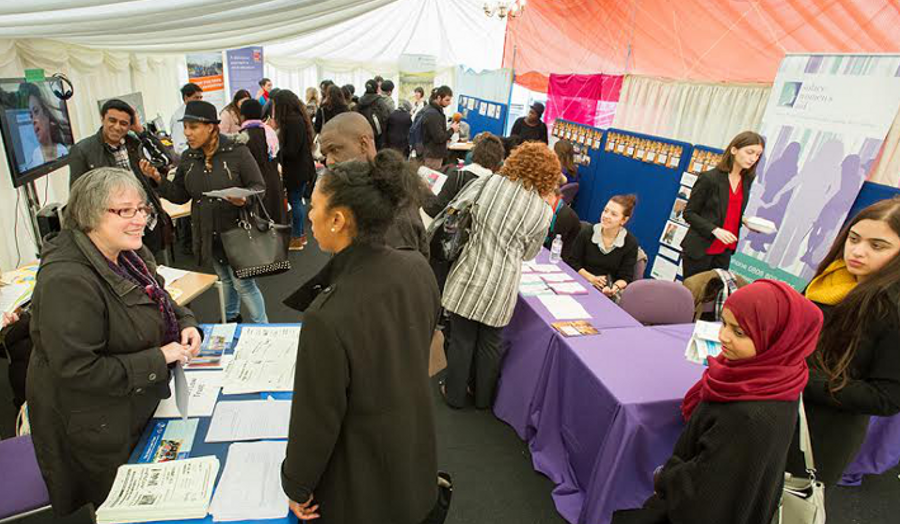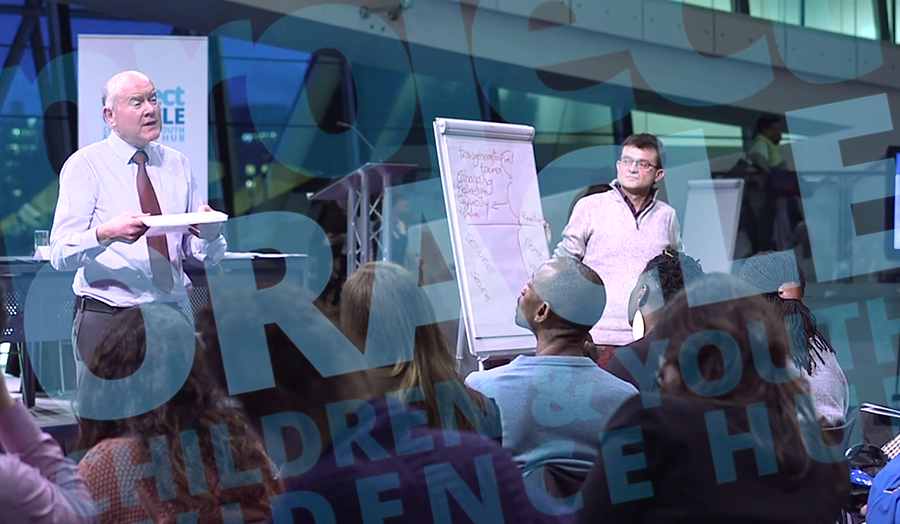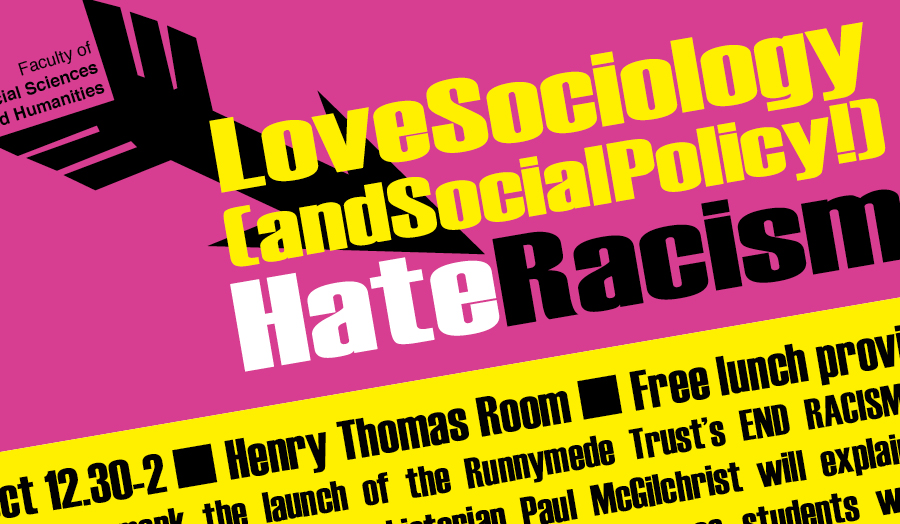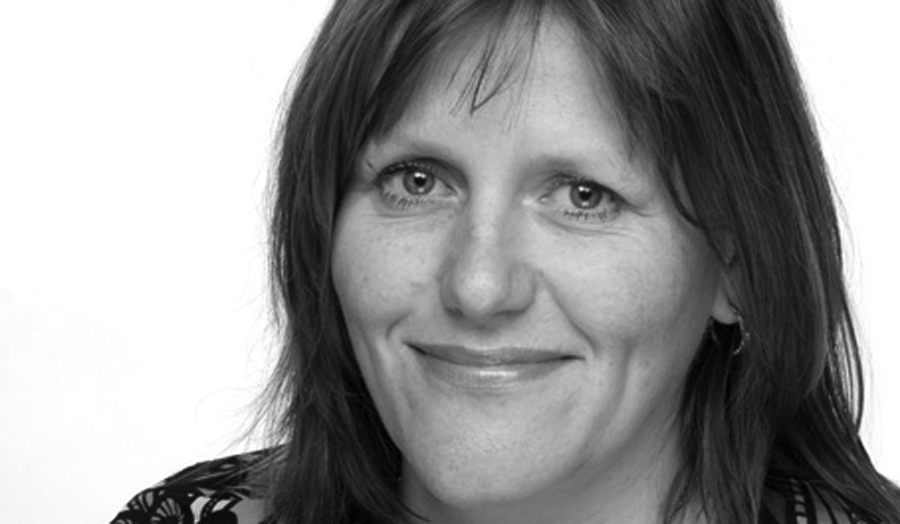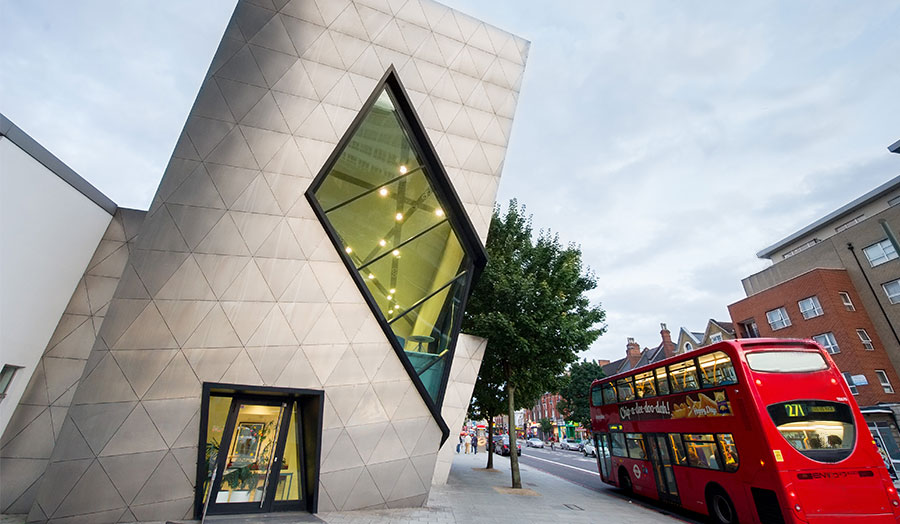Apply for this course
Please select when you would like to start:
If you're a UK applicant wanting to study full-time starting in September, you must apply via UCAS unless otherwise specified. If you're an international applicant wanting to study full-time, you can choose to apply via UCAS or directly to the University.
If you're applying for part-time study, you should apply directly to the University. If you require a Student visa, please be aware that you will not be able to study as a part-time student at undergraduate level.
Why study this course?
This BA degree in Education tackles the big questions in education, as seen through sociological, historical, philosophical and psychological lenses. This course can lead to a wide variety of career choices or further academic study.
Interested in finding out more? Sign up for one of our information events – online or in person – a chance to meet the tutors and get your questions answered. See below.
Boost your career prospects
This course will provide you with an excellent foundation for a career in a wide range of education-related areas
Join a supportive and motivated group of alumni
As a graduate of the Education BA you'll be part of a community of professional and experienced educators, all willing to support you in your personal and professional development
Learn from industry professionals
The teaching will be conducted by experienced lecturers who formerly worked as teachers or managers in schools
Course modules
The modules listed below are for the academic year 2024/25 and represent the course modules at this time. Modules and module details (including, but not limited to, location and time) are subject to change over time.
Year* 1 modules
Year 2 modules
Year 3 modules
Becoming an Educationist: Reading, Writing and Enquiry
This module currently runs:all year (September start) - Tuesday afternoon
(core, 30 credits)
On this module you will think critically about what education is and what it means to become an educationist and reflective practitioner. You will interrogate assumptions underpinning educational practice, consider alternative approaches and become aware of your own educational values.
Through active class participation and engagement with educational theory you will explore varied approaches to developing a range of academic practices (such as oral communication, reading, writing and referencing as well as creative, visual and digital literacies) in the context of education studies. This may include, but is not restricted to:
• social and embodied approaches
• developing your ‘voice’ in a variety of written genres
• primary research/fieldwork.
You will become familiar with the conventions of academic study in the education context through reading, writing and enquiry. The module will introduce you to educational research processes and ethics and support you in conducting a small-scale research project.
Throughout the year you will be encouraged to reflect critically on your learning and its impact on your development as an educationist.
This module aims to:
• Support your development as an educationist and member of an inclusive academic community.
• Facilitate your reflective practice based on reflective models/theories.
• Encourage you to critically engage with educational debates and underpinning theories.
• Develop your academic literacy using a range of approaches.
• Introduce you to educational research.
Knowledge, Culture and Education
This module currently runs:all year (September start) - Tuesday morning
(core, 30 credits)
This module serves as an introduction to the key concepts that underlie the study of education, and that will be employed throughout the rest of the course.
It will introduce you to various ideas and theories about the role education plays in society. It will ask you to think about the meaning and purpose of education in the light of these ideas. In particular we will focus upon questions about the transmission of knowledge and culture. And we will ask what the relation between knowledge, culture and education should be, especially in our own rapidly changing, highly technological, multi-cultural society.
The module aims:
• To introduce you to the study of education as a social phenomenon and encourage you to question its role in contemporary society
• To examine critically the idea of culture and the role it plays in social and educational theory
• To analyse what we mean by knowledge and to explore the ways in which it gets established
• To study the historical impact of various developments in the representation, storage and transmission of knowledge, such as writing and number systems, printing, and digital media
• To reflect upon the future of education in the 21st century given the rapid advances in IT, AI and robotics as well as the environmental challenges facing humanity
Making Sense of Education
This module currently runs:all year (September start) - Thursday morning
(core, 30 credits)
The module introduces Education Studies. In doing so it draw on a wide range of intellectual resources, theoretical perspectives and academic disciplines to illuminate understanding of education and the contexts within which it takes place. It also introduces potential career pathways using Education Studies experiences and qualification.
The module aims to
● Introduce students to the subject discipline;
● To provide an overview of some of the major issues and debates in the development of English education and encourage students to critically engage with these from social justice in education perspective;
● Present a range of theoretical perspectives which can be used to describe and analyse the education system;
● Provide a sound foundation for self-reflection in relation to career choice and employability
● To offer students a context within which to develop the practices of reading, of dialogue and of reflective writing required in higher education.
The School and the City
This module currently runs:all year (September start) - Thursday afternoon
(core, 30 credits)
The module encourages you to reflect on your own identity, educational possibilities and limitations in urban contexts. You will engage with key reading and relevant theories to support this exploration. You will look at how the urban environment can be used as a resource for educational enquiry, particularly concepts of place and space and how these influence the social reality of the city. The module explores how education and policy in the urban environment impacts on social class, ethnicity, gender, race, language and multilingualism. Further, it investigates formal and informal learning in a variety of urban educational contexts. Throughout the module, you will develop your critical reading and writing skills and improve your oral skills in presentations and seminars.
Read full detailsBecoming a Teacher
This module currently runs:spring semester - Thursday morning
(core, 15 credits)
This module introduces students to the teaching profession, offering an insight into key aspects of teaching as a career - with a focus on typical practice in schools.
The module provides a critical framework to examine many of the essential elements of good practice and a range learning theories and research, exploring their application in the classroom and how and why they are important.
The module aims:
• you will gain knowledge and understanding of the teaching profession teaching as a potential career path.
• you will gain knowledge and insight that will allow you to make informed decisions regarding application to teacher training.
• you will be introduced to key readings and research that underpin the most effective practice for teachers.
• you will explore how teachers place this theory into practice in their classrooms.
• you will explore professionalism through the Teacher Standards and how this relates to life in school.
Experiential learning in Education
This module currently runs:all year (September start) - Thursday morning
(core, 15 credits)
This module enables students to undertake a period of work-based learning in relation to their course at Level 5 in an appropriate educational institution, organisation or setting and to gain credit for that learning. Students should have the opportunity to apply, to test and to extend the knowledge that they have gained at all levels of their course in order to deepen their understanding of professional educational practice and enhance employability.
To maximise accessibility, placement context can be flexible, with option for either an in-situ and remote/virtual context. Students with additional support needs are advised and supported via Disabilities and Dyslexia Services and any reasonable adjustments for placement, if appropriate, are included on Individual Needs and Assessment Report (INAR).
Placement opportunities are shared by the Work-based learning unit, including placements within the university. Students unable to find or take up a work placement can request a peer mentoring opportunity and gain an insight into mentoring, coaching and supervision via supporting new Level 4 students on the course. This could represent an important first step that will allow students to build mentoring processes as a component into their subsequent professional lives.
The module aims to give students the opportunity to:
● Effectively express and understand their current skills and knowledge in relation to their career values and goals.
● Practically apply knowledge gained through their course programme in the context of a work or mentoring environment.
● Build an in-depth insight into a work or mentoring environment
● Make a positive contribution to the employing organisation and demonstrate inclusive workplace practice.
● Enhance and reflect on their personal and professional development in order to apply their learning to their future goals.
Please note:
● Students will be contacted prior to the semester to provide support in securing a work based placement in good time.
● Students are responsible for applying for opportunities and to engage with the Module Team/Work Based Learning teams to assist them in finding a suitable placement in an educational setting where they can get insight into educational practice. This is very likely to involve a Disclosure and Barring Service (DBS) check.
● The suitability of any opportunities will be assessed by the Module Team/Work Based Learning Team and all placements must meet Health and Safety requirements for Higher Education Work Placements.
● Those studying on a Student Visa will only be able to complete a work placement if it meets UKVI monitoring requirements including: approval of the placement dates and hours by the Placement Officer prior to starting the placement, submission of weekly timesheets for the hours undertaken, signed by their line manager/supervisor and continued engagement with the Placement Officer as well as the International Student Support and Compliance Team.
Psychology of Learning
This module currently runs:all year (September start) - Thursday afternoon
(core, 30 credits)
This module recounts the relations between systematic studies of the mind or brain, from the close of the 19th century, and educational theory and practice.
In the first part of the module, the history of psychological theories from William James to Howard Gardner are studied, for the purpose of assessing their capacity to guide learning in the classroom.
In the second half of the module, the birth of contemporary neuroscience from the cognitive revolution of the 1950s is recounted, in order to assess the extent to which contemporary theories of language acquisition, reading, writing and arithmetic can resolve difficulties associated with teaching and learning in these areas.
The module aims to enable students to:
• Acquire knowledge and understanding of theories of the mind and brain from the late nineteenth-century to the present.
• Understand the relation between these theories of the mind and prominent learning theories.
• Critically assess the extent to which theoretical models of the mind are useful guides for the planning of teaching and learning in the classroom.
• Develop their professional capacity for reflection through appreciating the importance of mediating judgement when applying a theoretical model to practice.
Researching Education
This module currently runs:all year (September start) - Monday morning
(core, 30 credits)
In this module, students will be introduced to the two main traditions of social research – positivism and interpretivism. They will learn about key aspects of social research and the steps involved in developing an effective qualitative research project. They will be provided with examples of good quality educational research and will have opportunities to analyse and critique these, aiming to develop their own knowledge, understanding, and skills.
At the end of the module, students will design and conduct a small-scale qualitative pilot research study. It is envisaged that this module will form the foundation for the final year dissertation module. As such the pilot study report will directly feed into students’ dissertation research project.
Module Aims:
As a result of successfully completing this module, you will be able to:
1) develop a good understanding of the purposes, nature, components, and processes of social research.
2) design and conduct a small-scale qualitative research study in education.
3) review and critique existing social research.
4) report the findings of a small-scale primary qualitative research study.
Sociology and the Curriculum
This module currently runs:all year (September start) - Monday afternoon
(core, 30 credits)
This module builds upon the understanding gained at Level 4 (in particular in SS4021) about the social function of education and the nature of the knowledge it transmits. It serves both as an introduction to the sociology of education and an opportunity to reflect upon the social and ideological forces shaping formal education in the UK today.
This module will introduce you to debates about the school curriculum. Why are particular subjects taught and why are some considered more important than others? How is it decided what the content of each subject should be? In order to address these questions we will explore various theories in the sociology of knowledge and education. An understanding of these theories will help us understand the ways in which curricula are moulded by ideas both about the function of education and about the nature of society.
The module aims to:
• Critically explore the curriculum as a site of contestation between different views on the purpose of schooling
• Introduce students to theories within the sociology of knowledge in relation to concerns about whether school curricula convey knowledge or ideology
• Identify and analyse competing ideological positions surrounding current curriculum debates
• Consider the nature and purpose of individual subjects within the National Curriculum
Read full detailsEducation Studies Dissertation
This module currently runs:all year (September start) - Tuesday morning
(core, 30 credits)
The module allows students to gain experience of conducting a small-scale research study by searching, gathering, interpreting and presenting primary data. It outlines possibilities for further scholarly activity and research as graduates of Education Studies.
This module is integrally connected to and develops from the level 5 module Researching Education (SS5021). When the students start learning research skills at level five, they are encouraged to look at their research studies at levels five and six as one extended project. As the research study report they write at level five is based on a pilot study for their dissertation project, they can incorporate aspects of the level five report into their dissertations, without it being flagged up as self-plagiarism.Students begin by reviewing the pilot studies that they carried out at level 5 with the view to devise their level 6 research projects. Students will evaluate the research focus, the methodology, and the findings of their pilot studies. This reflection will become the starting point for their new learning in this module.
The module introduces students to some key debates in the philosophy of research and the emergence of the interpretivist paradigm in social research. They will be asked to locate their studies within the interpretivist paradigm and develop convincing justifications for doing so.
The students will have opportunities to develop a deeper understanding of various aspects of qualitative research methodology. This knowledge will help to devise a sound design for their dissertation research projects.
The module will help the students develop and enhance their skills of qualitative data analysis.
Throughout the module, students will be provided opportunities to develop the skills of writing a good-quality dissertation that will report the execution and findings of a small-scale, qualitative primary research project.
Module Aims
The module aims to enable students to:
1) develop an emerging knowledge and understanding of some of the key philosophical debates related to the ontology and epistemology of social research.
2) develop a deeper understanding of the purposes, nature, components, and processes of social research.
3) be able to design and conduct a small-scale qualitative research study in education.
4) be able to insightfully review and critique existing social research.
5) be able to confidently report the findings of a small-scale primary qualitative research study.
Educators as Social Pedagogues
This module currently runs:all year (September start) - Thursday morning
(option, 30 credits)
This module reflects on the meaning, purposes and role of the educator in democratic societies. It explores notions of social pedagogy and ideas around the role of a public intellectual. It considers value settings for the educator and for education and seeks to help students develop a personal philosophy of education.
The module aims to:
● Examine a number of important approaches to understanding the role of the educator and professionalism in democratic societies, including theoretical contributions from a reading of social pedagogy, citizenship education and the meaning of the public intellectual;
● Familiarise students with complementary and competing conceptions drawn from theorists such as Freire and Dewey as well as work on leadership, management and professionalism;
● Critically examine the characteristics, aspirations and convictions of the educational workforce and ideological constructions of the educator;
• Critically explore contemporary education and the pressures of teaching – focused around professionalism, ideology and the marketisation of education;
• Enable students to develop their own philosophies of education – where it takes place and what it means?;
• Explore global models of education in an attempt to critically explore western education from a decolonial perspective
Gender and Education
This module currently runs:autumn semester - Monday afternoon
(option, 15 credits)
Module description:
The module will encourage academic debate around gender issues and gender theory and education as hallmarks of urban education and its theorisation; these debates will emanate from and be stimulated by empirical encounter and the reading of current educational academic research. It will draw upon formal areas of gender studies, feminist theory, sociology of education, gender philosophy, educational research and cultural studies.
The module aims:
• Critically examine the understanding of gender and reflect on own expectations of appropriate ‘male’ and ‘female’ behaviour and other gender identities.
• Understand the importance of making gender visible in educational and social theory.
• Engage critically with debates about gender differences in participation and achievement in education.
• Discuss how learner identities may be influenced by current understandings and expectations of gender and sexuality.
• Explore the role of schools in creating and maintaining gender hierarchy and stereotypes.
• Demonstrate an understanding of gender sensitivity in conducting and engaging with research.
Inclusion, Education and Equalities
This module currently runs:all year (September start) - Monday morning
(option, 30 credits)
Module description:
You will be introduced to academic debates around social justice and inclusion as philosophical notions and as practical realms of education. You will be encouraged to engage academically, critically and reflectively with the different interpretations of inclusion and equalities that emerge from inclusion studies, inclusion policies and political discourses around inclusion. You will
develop a historical and analytical understanding of aspects of past and current policy in relation to inclusion and inclusive education, including disability and special educational needs. It will draw upon formal areas of inclusive studies and social justice, and educational academic research.
The module aims:
1. To enable students to apply theory to interpret debates around inclusion, inclusive education and inclusive practices in society;
2. To highlight debates around inclusion and exclusion in educational discourse, inclusive policy and theory;
3. To explore the many interpretations and definitions around inclusion and equalities and analyse how they are embedded in education
4. To examine the relationship between educational and social structures with reference to issues of inclusion, social exclusion and social justice;
5. To explore academic educational research around inclusion and inclusion policy to critically engage with current debates around inclusions and exclusions in education
Multilingualism and multiculturalism
This module currently runs:spring semester - Monday afternoon
(option, 15 credits)
The module seeks to support and develop critical reflective practice within a social justice perspective that questions taken-for-granted epistemological positions and by developing a link across theory, policy and practice to understand multilingual and multicultural experiences in societies and educational contexts.
You will be able to:
● Engage with a wealth of theoretical and methodological perspectives on multilingualism and multiculturalism across a range of contexts (home, school, community)
● Interrogate taken-for-granted epistemological positions and one’s own assumptions of some key concepts, such as ‘language’, ‘culture’, ‘learning’, ‘bilingual pedagogies’ etc.
● Explore the implications of teaching children or adults with different languages and cultures in your own settings
● Make links across theory, policy, and practice
● Experience multilingual teaching and learning in different educational contexts around the world, including the UK.
Philosophy of Education
This module currently runs:all year (September start) - Tuesday afternoon
(option, 30 credits)
This module introduces students to key debates within the philosophy of education, by way of critical examination of central contributors to that debate from ancient Greece to the late 20th century.
Philosophical accounts of the nature and value of education have been fundamental to education studies since its inception, informing all other methodical approaches within the area. Whereas, however, other approaches tend to appropriate and assume the validity of a philosophical theory in order to apply it to an educational phenomenon, in the philosophy of education we critically examine the coherence and validity of the original theory itself.
The study of philosophy is hence pedagogically unique, insofar as it recognises no authorities or valid assumptions, apart from those that can be established through logic. Students taking the module not only gain knowledge of what philosophers have said, but are also invited to philosophise with and against them, subjecting their claims to critical scrutiny.
The module aims to enable students to:
• Gain knowledge of key debates within the philosophy of education, from ancient Greece to the late 20th century.
• Understand how positions within the history of philosophy of education inform contemporary educational debates.
• Develop skills of analysis and logical criticism, by examining the coherence, reliability and validity of philosophical theories related to education.
• Appreciate the importance of reasoned argument and criticism over authoritative assertion of belief in debates on topics of public significance.


.png)
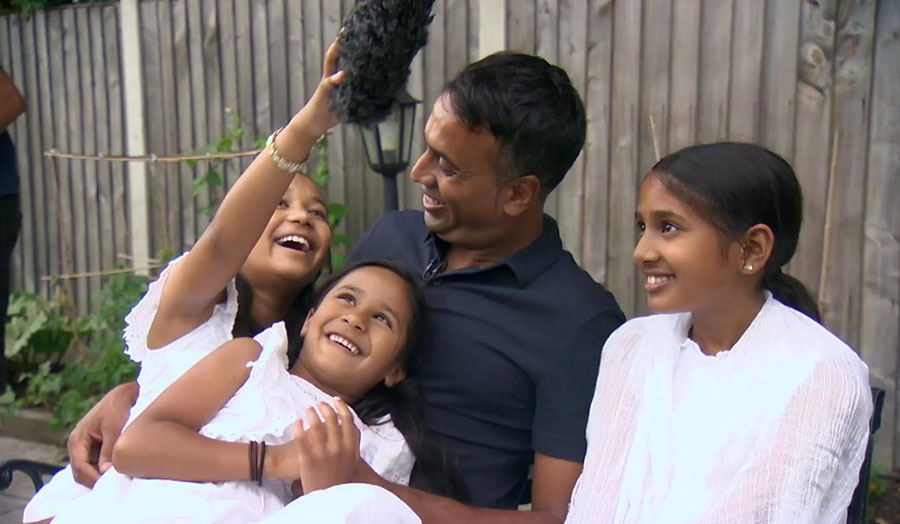
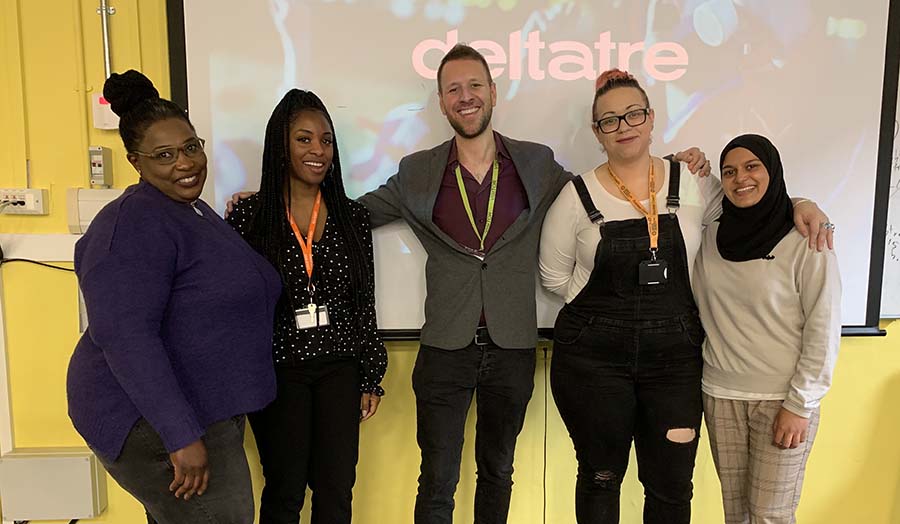
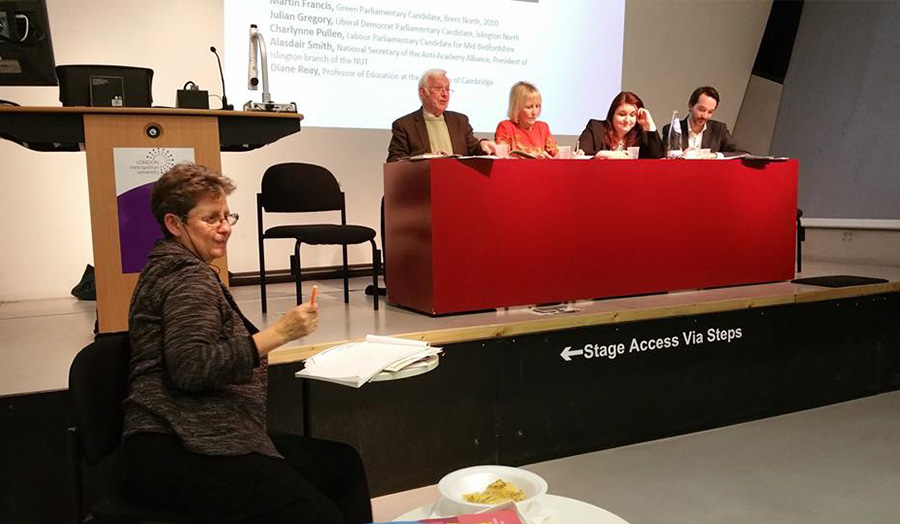
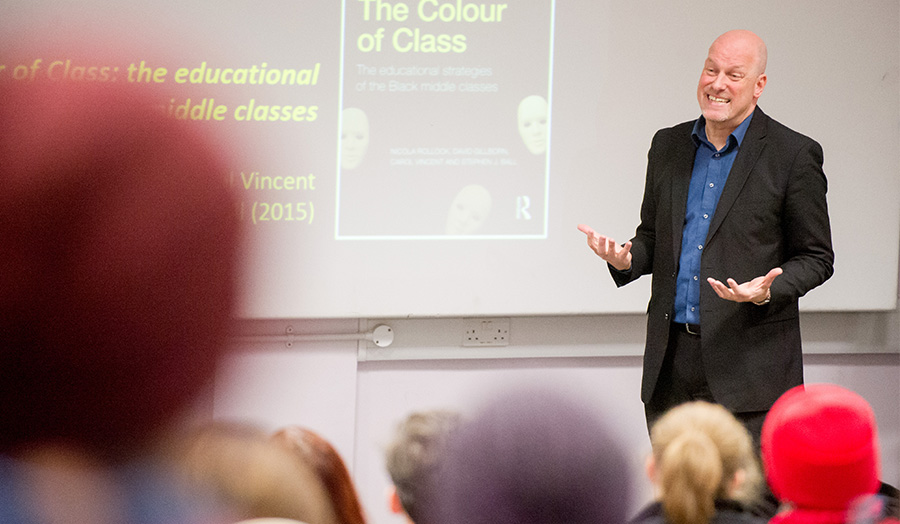
.jpg)
